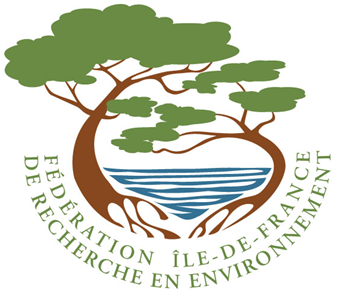Metis (Mediums, Environment, Tranfers and Interactions in hydrosystems and Soils) is a Joint Research Unit CNRS / Sorbonne University / EPHE (UMR 7619) organized in two departments: Hydrogeophysics and Biogeochemistry.
It aims to integrate the functioning of hydrosystems (surface and groundwater) and their relations with watersheds and their territories. The Metis Unit includes researchers and research lecturers with varied interdisciplinary skills: geophysics, geochemistry, hydrology, biology and microbiology, biogeochemistry and the history of science. Metis develops tools for field measurements in geophysics, organic geochemistry analysis protocols and numerical models in geophysics, hydrology and biogeochemistry of hydro-agro-systems. Modeling allows the link between field observation and laboratory experiments from microscopic to macroscopic. The scales of space thus range from the agricultural plot or the small catchment to the regional scale of river basins, or even the continental or global scales. In terms of temporal scales, Metis examines retrospectively the impact of human activities on hydro-agro-systems, going back to the 18th century, and seeks to validate its modeling tools during periods when quantitative data can be found; archive sources can also be translated into quantitative data. Expertise of Metis is also to co-construct scenarios and translate them for being included in the modeling tools and to quantitatively explore the cross-effects of anthropogenic and climatic impacts on hydrology and groundwater and surface water quality, in the land-sea continuum for example. Metis seeks to carry out fundamental research to advance the knowledge front, but also to respond to current societal challenges (those of toxic molecules to the environment and human health, water resources or nutrients, climate change, soil protection, etc.).
The 4 main themes of the Hydro-geophysics department are:
- Methodological developments: imaging, instrumental design and modeling
- Characterization of media and interfaces
- Physical couplings groundwater / surface / ocean / atmosphere
- The effects of human activity on hydro (geo) systems
The objectives of the Biogeochemistry Department are:
- Link rates of microbial processes to the presence, abundance, diversity and activity of microorganisms
- Quantify the role of organic matter on the fate of micropollutants
- Analyze the cycles of biogenic elements and the couplings of these biogeochemical cycles
- Describe and compare the organization of hydro-agro-food systems at nested scales
The cross-cutting themes of Metis combine the expertise of the two departments for a coupled hydro (geo) logy / biogeochemistry modeling, to establish the trajectories of the past and to model scenarios for possible futures.
In addition, biogeoarchaeology and urban archeology are also research activities of Metis that integrate geophysical and geochemical skills.
Experimental devices and infrastructures
Metis has been a principal investigator of the PIREN-Seine program for more than 25 years (Multi-Partners: AESN, SIAAP, SEDIF, VNF, etc.) and the Atelier Seine (eLTER-CNRS). This eLTER federates several laboratories of the FR-FIRE.
COLLABORATIONS
Metis maintains numerous scientific collaborations:
- In France, Metis has been working for a long time with the Ecole Des Mines of Paris (Géosciences Fontainebleau), Inrae (HYCAR Antony laboratory, and several laboratories in Mirecourt, Grignon -Versailles and Laon). Metis also collaborates with the FR-FIRE, and the FR-IPSL. Numerous collaborations exist also within the framework of projects on the land-to-Sea continuum with IFREMER, or with the University of Bordeaux and Grenoble.
- In Europe, the Metis UMR has long-standing collaborations with European project partners, with the Université Libre de Bruxelles (Belgium) for 25 years, but also with the PBL and the University in Utrecht (the Netherlands). Metis is also collaborating with other famous labs, such as the Center for Ecology & Hydrology in Edinburgh (Scotland), the University of Madrid and the CSIC of Barcelona), etc.
- Internationally, a long collaboration with the VAST (Vietnamese Academy of Science and technology in Hanoi) has continued for about 20 years, as well as with the University of Cornell (USA, NY).
EDUCATION
METIS participates at Sorbonne University in the courses of the first university levels, in master degrees (M) and doctoral school 398 GRNE (Geosciences, Ressources Naturelles et Environnement).
Metis professors and researchers are principal investigators of several training courses such as Master SDUE, Polytech Paris (Earth Sciences specialty), Professional License Resource and Quality of Water in the Environment (RQEE), 3rd year Earth Science (S & T) and several major teaching units.
Each year, METIS welcomes 3 or 4 ATERs. 10-20 doctoral students are trained each year, together with 5-8 post-doctoral students and 10-15 short-term master trainees.

